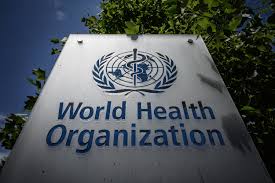World Health Organisation (WHO) on Monday, May 31 announced that covid ‘variants of concern and interest’ will now be known by their new name put in place as per the Greek alphabet system. The labels or names were chosen after wide consultation and review of many potential naming systems.
WHO decided after consultation with experts who are part of existing naming systems, nomenclature, virus taxonomic experts, researchers, and national authorities.
The covid variants were until now referred to by their scientific names such as B.1.617.2, B.1.17, and so on. However, WHO has not restricted the use of these scientific names and can still be used for scientific information and research.
“They will not replace existing scientific names, but are aimed to help in public discussion of VOI/VOC,” said Maria Van Kerkhove, Covid-19 technical lead, WHO, in a tweet on May 31.
What are these names?
The Sars-Cov-2 variant first found in the UK in September 2020 has been named Alpha, one sampled in India (B.1.617.2) in October 2020 as Delta, the other from South Africa in May 2020 is now called Beta and from Brazil in November 2020, Gamma. These have been categorised as the ‘variants of concern’.
Among the ‘variants of interest’, the variant that gripped the USA (March 2020) is called Epsilon, and Brazil (April 2020) is called Zeta. The variant found in India (B.1.617.1) in October 2020 has been named Kappa. Other names include Eta, Theta, and Iota.
Why now?
The decision of WHO to name covid variants has come weeks after India’s objection against the use of the word ‘Indian variant’.
In a statement on May 12, the Union Health Ministry said that the World Health Organization did not refer to the variant first found in the country as “Indian”, a day after WHO labeled it as a variant of concern. Further on May 26, the government asked social media companies to avoid the use of the word “Indian variant” from their services.
In its 2015 advisory, WHO had cautioned against naming new infectious diseases in a manner that could lead to negative effects on nations, economies, and people.
Moreover, WHO in its release dated May 31 has said that scientific names can be difficult to say and recall, and are prone to misreporting. As a result, people often resort to calling variants by the places where they are detected, which is stigmatizing and discriminatory.
Impact of the decision
The assigned names are simple, easy to say, and do not hurt the ethical sentiments of people from where the variant was found. In addition to this, it will also remove regional associations that could lead to stigmatisation.
WHO also encouraged national authorities, media outlets, and others to adopt these new labels, which would promote national respect among countries.
How are viruses named?
The general system to name viruses is based on their place of origin, for instance, Ebola, Zika, etc. However, this has in the past led to negative impacts, such as in the case of the Spanish flu, whose origin is still not clear.
In the case of Covid-19, the established nomenclature systems for naming and tracking SARS-CoV-2 genetic lineages is done by GISAID, Nextstrain, and Pango system. They are currently in use and will be prevalent for scientific research.




























 WhatsApp us
WhatsApp us